Over the years, diesel generators have been the stalwart symbols of the dependable power solution for industrial processes and home applications. Right off the cuff, power cuts may require urgent action to keep vital equipment running or provide the sheer assurance that comes with a dependable source of energy. The diesel generator can lend power support to all these scenarios. This article examines the benefits, applications, and key factors to consider when purchasing a diesel generator, helping you make an informed decision. From ensuring power continuity in essential business operations to emergency protection for your home, here are some ideas about why diesel generators continue to be an invaluable means of power reliance in today’s world, as you would want to find out. Keep reading to find out how these robust diesel giants can satisfy your energy requirements.
What is a Diesel Generator?
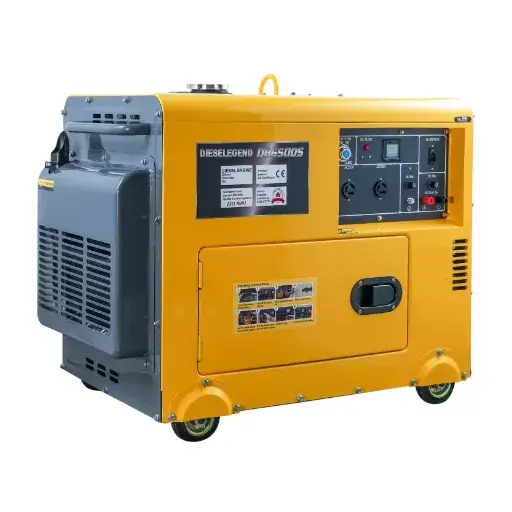
A diesel generator may be considered a machine that converts the chemical potential in diesel fuel into electrical energy. With the engine in operation, the diesel engine drives an alternator to generate electricity. These generators are being widely implemented as a reliable power source in homes, businesses, and industrial operations, especially when the electric power is interrupted or an area is out of reach from the power grid. They are good partners, in terms of life expectancy and efficiency, as they can provide energy consistently even under the most challenging conditions.
Role in Backup Power Systems
Diesel generators find utility within backup power systems as an emergency power supply, ensuring stable and uninterrupted electricity. Critical infrastructure, including hospitals, data centers, and manufacturing plants, demands the ability to quickly start diesel generators and pay a very high price for the power. The latest statistics reveal a sustained increase in demand for diesel generators, as electronic systems continue to gain importance and natural disasters become increasingly frequent, resulting in large-scale power outages. Though the technologies have evolved, diesel generators have improved fuel efficiency, reduced emissions, and enhanced monitoring capabilities, thus making them a practical and environmentally conscious choice for backup power.
Popularity and Advantages
Diesel generators have remained immensely popular due to their reliability in ensuring power during critical outages and their excellent performance in various environments. Search queries have recently highlighted questions about the efficiency, durability, and cost-effectiveness of diesel generators compared to other power options. Additionally, these generators rank high in allocation since they provide uninterrupted power with less periodic maintenance and an increased lifespan compared to other options. Moreover, operating in extreme conditions renders the generator highly preferred in industries where downtime is never an option. With the ever-changing pace of technology, these diesel generators continue to serve as a dependable backbone for the infrastructure’s backup power.
Benefits of Using Diesel Generators
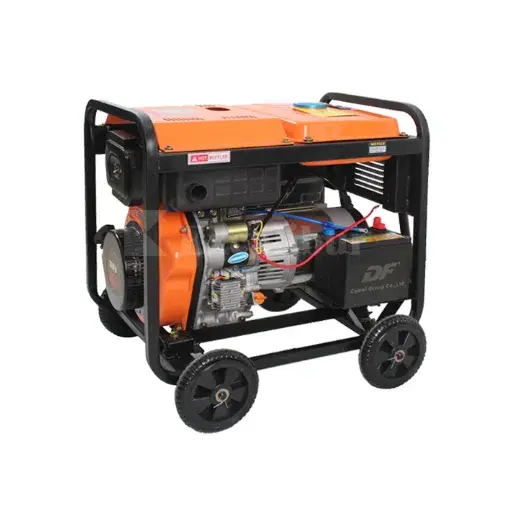
- Efficiency: Diesel generators are highly fuel-efficient and produce more output per unit of fuel over many alternatives.
- Reliability: Diesel generators are highly durable and reliable, allowing them to supply power on demand even under unfavorable operating conditions or extended runs.
- Low Maintenance Requirements: Diesel generators require less maintenance due to their fewer moving parts and sturdy construction compared to other generators.
- Versatility: These types of generators can be used in various industries, schools, residential areas, or other remote applications.
- Longevity: Engines are diesel type-built for long service, thus having a long operating life.
Reliability and Performance
Diesel generators have a reputation for reliability and stable performance even when subjected to harsh conditions. These generators utilize the most up-to-date engine technology to deliver power that industries can rely on in today’s ever-evolving industrial landscape. According to recent search trends, there has been a rise in queries concerning backup power solutions and their reliability, especially in sectors prone to disturbances, such as healthcare and data centers. This highlights the importance of continuity provided by diesel generators in the operation and protection of critical systems. The fact that they could generate a stable output in any external condition has enforced the need to include them in power generation solutions.
Durability and Longevity
Diesel generators are often recognized for their ruggedness and long service life, making them a preferred choice for temporary or extended power generation solutions. Search engine trends also support this, as searches for “long-term power solutions” and “durable backup generators” have increased sharply, indicating that consumers and businesses prioritize power reliability. Diesel generators can last for many years with proper maintenance, making them a rugged solution that can withstand harsh environments and continuous use. Their longevity translates into savings on replacement costs and, most importantly, ensures that power generation remains uninterrupted during peak demand, making them a well-worth investment.
Factors to Consider When Purchasing a Diesel Generator
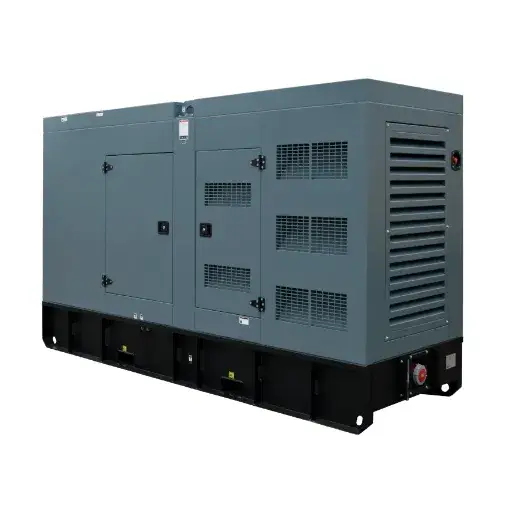
-
1
Power Requirements
Determine the power output your application requires. Consider the total load you need to support and whether the generator will be used for primary or backup power. -
2
Fuel Efficiency
Ensure that you consider the fuel consumption rates of the generators to minimize expenses during operational periods. An efficient fuel-use generator can yield substantial savings over an extended period. -
3
Size and Portability
Choose one that fits the space for installation. For applications on the go, consider a portable generator. -
4
Noise Levels
Consider the noise level rating of the generator, especially if it is to be installed in a residential or noise-sensitive area. Some models will come with soundproofing features. -
5
Maintenance and Durability
Evaluate the quality of build and routine servicing requirements of the generator. Consider something robust and well-supported to source parts and services. -
6
Warranty and Support
A warranty that comes with good support for technical help in troubleshooting or repairs must be ensured. -
7
Compliance with Regulations
Check if it fills in the blanks for local environmental and safety regulations. For example, compliance with emission and noise level regulations.
Noise Levels and Residential Considerations
Noise considerations for a generator intended for residential use are significant to ensure that neighbors are not disturbed or to prevent a violation of local noise ordinances. The newer-style generators come with features designed to reduce noise, including insulating enclosures and advanced muffler systems. According to the latest information, inverter generators rank at the very top in terms of quietness, producing no more than 50-60 decibels of noise, which is comparable to the level of ambient conversation. Depending on the location of the generator, away from living areas, and with the establishment of sound barriers, this can further mitigate the noise issue to an acceptable level for neighborhoods.
Portability vs. Stationary Units
In the case of portable or stationary generators, selection often depends on use, power level, and convenience. Portable generators, by definition, are designed to be mobile; thus, they are ideal for keeping things going on a camping trip, at an outdoor event, or for temporary backup power needs. These units are typically compact and lightweight, equipped with wheels or handles to facilitate easy movement. Conversely, stationary units or standby generators are installed within the premises themselves. They are automatically activated during power outages to provide a reliable source of energy for the house or business premises. According to recent searches, users usually ask about reliability and cost when comparing the two. Usually, portable units are considered relatively cheaper but require manual operation most of the time. In contrast, stationary ones are costlier but offer higher power availability and uninterrupted functioning for those who want a hands-free source of energy in the long run.
Maintenance Tips for Diesel Generators
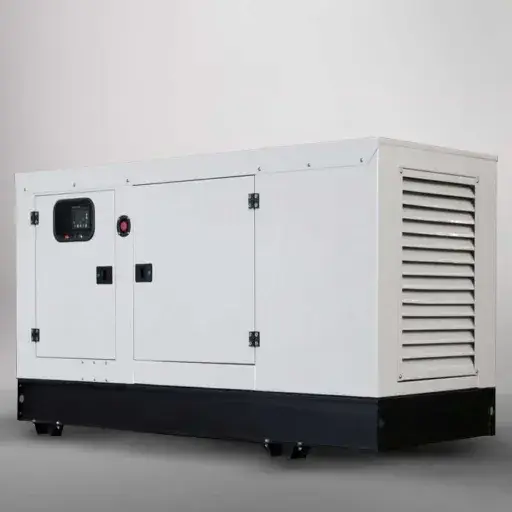
- Perform Regular Oil Changes:
Check and change the oil as recommended by the manufacturer to ensure smooth operation and extended longevity. - Monitor Coolant Levels:
Keep coolant levels at the fitting tent so that engines are protected from overheating. - Replace Air Filters:
Keep it clean, if possible, and change the air filter regularly to ensure the engine works well and prevents dust buildup. - Inspect the Fuel System:
Look for leaks and cross-contamination while keeping fuel clean, ensuring it contains no contaminants. - Test the Battery:
Check and charge the battery of the generator at regular intervals to avoid problems when starting. - Run the Generator Periodically:
Run the generator under load at regular intervals to prevent engine corrosion and ensure that all other components function properly. - Follow Manufacturer’s Guidelines:
The points in the manufacturer’s handbook about the maintenance schedule and recommendations should be followed.
Regular Inspections and Checks
Performing regular inspections ensures your generator remains in top working order and is safe to use. The oil level, coolant, and fuel system must be checked for leaks or contamination. Air filters must be inspected, cleaned, or replaced as needed to maintain good airflow. The battery terminals should be inspected for corrosion, and the battery should be fully charged. Try out the starting system as well, and be on the lookout for unusual noises during operation, as these may indicate potential issues. Also, check that circuit breakers and wiring are intact and not damaged or tampered with.
Routine checks help identify and rectify any minor issues before they become significant problems, ensuring the dependability of your generator when needed.
Scheduled Servicing Recommendations
It is crucial to follow a regular maintenance schedule to ensure optimal performance and longevity for your generator. Here are suggestions:
| Frequency | Maintenance Tasks |
|---|---|
| Weekly Checks | Conduct simple inspections, including observation of oil levels, air filters, and leaks. A brief operation test can be performed to observe the generator starting and running. |
| Monthly Maintenance | Detailed inspection work needs to be conducted, including fuel system testing, cleaning the external parts of the generator, and checking its coolant level. All control panels and indicators should be checked. |
| Quarterly Servicing | Change the oil and oil filter as stated by the maker. Clean and inspect the spark plugs, test the battery under load, and check for signs of wear on the belts or loss of tension. |
| Annual Overhaul | A qualified technician should conduct a thorough examination, which includes calibrating the voltage regulator, inspecting the alternator’s components, cleaning and flushing the coolant system, replacing any worn-out parts or consumables, and updating the firmware where applicable. |
Applications of Diesel Generators
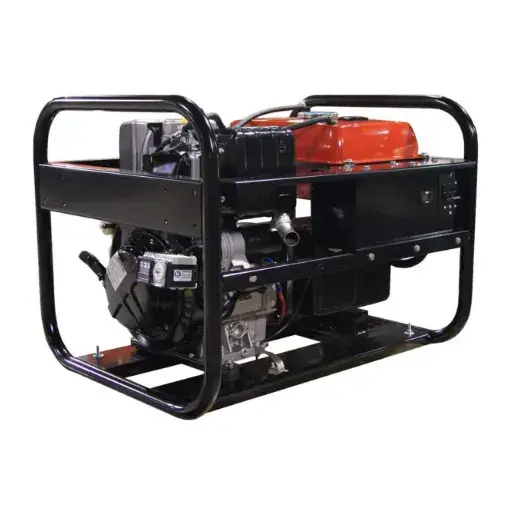
Diesel generators are utilized in various industries and applications due to their reliability and efficiency. Some examples of usage include:
Emergency Power Supply
Used in hospitals, data centers, and critical facilities to provide backup power during outages.
Construction Sites
Powering tools and equipment in remote or temporary locations.
Industrial Operations
Supporting manufacturing plants and factories during peak demand or when grid power is unavailable.
Agriculture
Operating irrigation systems, grain elevators, and other essential farm equipment.
Events and Entertainment
Supplying power for outdoor events, concerts, and temporary setups.
Telecommunications
Maintaining uninterrupted power for cell towers and network facilities.
Residential Backup Power Solutions
Diesel generators can be an ideal choice for residential applications that require backup power in emergencies, ensuring reliability and efficiency during sudden power outages. Technological advances have enabled modern diesel generators to become more noise- and fuel-efficient compared to older models, making them suitable for use in the home. Owners tend to ask, “What size generator is right for my home?” Generally, it depends on the household’s energy requirements. Typical appliances such as refrigerators, lighting systems, HVAC systems, and sump pumps require generators in the range of 5,000 to 10,000 watts for an average household. However, conducting an energy audit or consulting a professional will help you choose what best suits your needs. Investing in a diesel generator will give you peace of mind, ensuring that power is always available when you need it.
Commercial Power Needs
Meeting commercial power needs should be a strategic approach aligned with the precise energy requirements of an enterprise. Typically, commercial establishments consume significantly more power than residential ones, as they often include heavy machinery, specialized equipment, or larger HVAC systems. Generator sizing is dependent on several factors, primarily the nature of the business, peak hours of operation, and the equipment or machines being powered. In some cases, small retail shops may require generators with a capacity of 15,000 to 25,000 watts, whereas large manufacturing companies may need generators with capacities of 100,000 watts or more. A look at search trends reveals how businesses typically seek solutions tailored to their industry, requiring those that are reliable and efficient. Hence, the best recommendation is to look for proven energy conservation technologies, alongside conducting an energy audit, to ensure their power requirements are satisfied without overexpenditure.
Outdoor and Recreational Use
A significant factor that I value when selecting the ideal generator for outdoor and recreational activities is portability, ease of use, and durability. Anything between 2,000 and 5,000 watts is usually enough to power the essentials you need for out-in-camping gear, small appliances, or outdoor tools. Another key factor to keep things smooth is a quiet operation and fuel efficiency.
Reference Sources
The following three professional and authoritative references on diesel generators may help you verify the correctness of your article:
- Part-load economy of diesel-electric generators: This study covers the cost efficiency of diesel generators at different working loads.
- Effects of systems on labor optimization in the diesel generator service business in Kenya: This paper examines the diesel generator service business and its economic implications.
- Economic analysis: cogeneration using wind and biodiesel-powered generators: This analysis examines the integration of diesel generators with renewable energy sources for economic benefits.
Frequently Asked Questions (FAQs)
What is a diesel generator, and how does it work?
A diesel generator is a machine that converts diesel fuel into mechanical energy, which is then transformed into electrical energy. It operates by using a diesel engine to drive an alternator, producing electricity for various applications, including powering homes and businesses during outages.
Why should I buy a diesel generator for my home?
Buying a diesel generator for your home ensures a reliable backup power source during electrical outages. Diesel-powered generators are renowned for their durability and long-lasting performance, making them an ideal choice for continuous use. Additionally, they can handle heavy loads, providing sufficient power for essential appliances.
What are the advantages of using Cummins Onan QD diesel generators?
Cummins Onan QD generators are recognized for their high quality and reliability. They offer a range of features, including quiet operation, easy maintenance, and efficient fuel consumption. These generators are particularly suitable for residential use, offering stable power output and a long service life.
What is the typical shipping process for a diesel generator?
When you order a diesel generator for sale, the shipping process typically involves the seller preparing the product for transport, which may include packaging and documentation. Shipping times can vary depending on the supplier and your location, but most sellers provide tracking information to keep you updated on the status of your order.
How do I determine the appropriate kW rating for my diesel generator?
To determine the appropriate kW rating for your diesel generator, consider the total wattage of the appliances you intend to power. It’s recommended to add a buffer of 20% to account for startup surges of specific devices. This way, you can select a generator that effectively meets your power needs.
Are new diesel generators more efficient than older models?
Yes, new diesel generators are generally more efficient than older models due to advancements in technology and design. They often feature improved fuel efficiency, lower emissions, and enhanced performance, making them a better investment for both residential and commercial users.
What types of diesel generators are available for sale?
There are various types of diesel generators available for sale, including single-phase and three-phase models. Single-phase generators are ideal for residential use, while three-phase generators are better suited for industrial applications. Additionally, there are portable and stationary options, each designed for specific needs.
How long can I expect my diesel generator to last?
The lifespan of a diesel generator can vary depending on usage, maintenance, and the quality of the product. However, with proper care and regular maintenance, a diesel generator can last anywhere from 10,000 to 30,000 hours of operation, making it a reliable and long-lasting power solution.
What should I consider when selling my used diesel generator?
When selling your used diesel generator, consider factors such as its age, condition, and maintenance history. Providing detailed information about the generator’s performance and any upgrades can help attract potential buyers. Additionally, pricing it competitively based on the current market value can facilitate a quicker sale.
